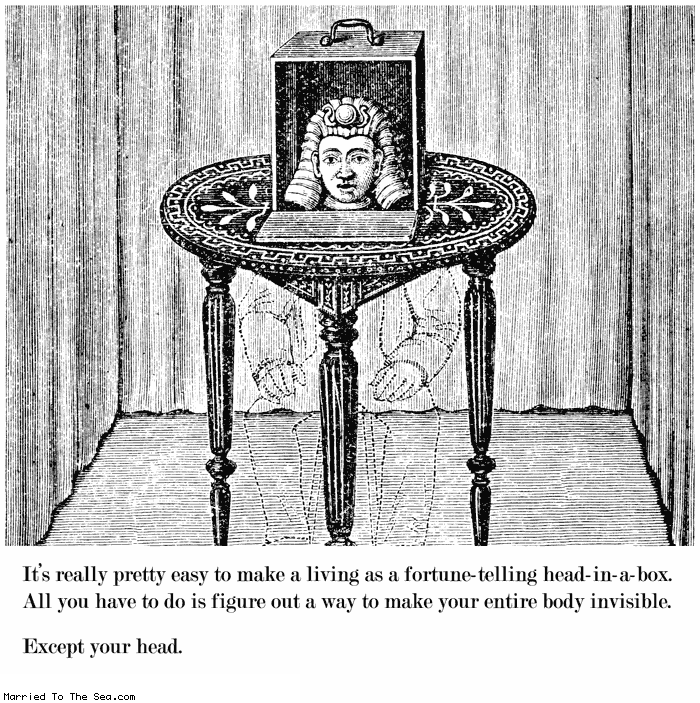[edit] Psychical research
- Main article: Parapsychology
The rise of modern inquiry into reports of psychical phenomena coincided with the introduction of modern Spiritualism in 1848 and the movement's claims of paranormal abilities. Shortly thereafter, the Society for Psychical Research was founded in Britain (1882) and the American Society for Psychical Research was founded in the United States (1885). Spiritualism was so widespread and the reports of its effects so numerous and impressive that it was inevitable that scientists would be attracted to the alleged phenomena. Early psychical researchers concerned themselves with studying mediums and spiritualist claims. In the early 1900s, a dissatisfaction with the results of the research and political disagreements within psychic research organizations led to a new approach and a new term for the study of psychic phenomena: parapsychology. [4]
Parapsychology began using the experimental approach to psychic phenomena in the 1930s under the direction of J. B. Rhine (1895 – 1980). [4] Rhine popularized the now famous methodology of using card-guessing and dice-rolling experiments in the laboratory in an attempt to find a statistical validation of extra-sensory perception. [4]
In 1957, the Parapsychological Association was formed as the preeminent society for parapsychologists. In 1969, they became affiliated with the American Association for the Advancement of Science. That affiliation, along with a general openness to psychic and occult phenomena in the 1970s, led to a decade of increased parapsychological research. [4] During this time, other notable organizations were also formed, including the Academy of Parapsychology and Medicine (1970), the Institute of Parascience (1971), the Academy of Religion and Psychical Research, the Institute of Noetic Sciences (1973), and the International Kirlian Research Association (1975). Each of these groups performed experiments on paranormal subjects to varying degrees. Parapsychological work was also conducted at the Stanford Research Institute during this time, research which continued till February 2007. [6] [4]
In 1979, survey conducted to assess belief in one specific field associated with psychics (ESP). It covered 1,100 US college professors and indicated that more than 50% of them believed that ESP is either an established fact or a likely possibility". Belief was shown to be highest among those involved in arts and humanities, but lowest among psychologists. [7]
| Field | Belief |
|---|
| Natural sciences | 55% |
| Social Sciences (exc psychology) | 66% |
| Arts, Humanities, Education | 77% |
| Psychology | 35% |
[7]
The methodology and results of parapsychological work are often debated within the scientific community. [citation needed] However, a consensus within the field of parapsychology is that certain types of psychic phenomena such as psychokinesis, telepathy, and precognition are well-established experimentally. [3] [8] [9] [10] [11] Critics such as Ray Hyman argue that the evidence for psi (psychic phenomena) needs further replication and theoretical work before it is accepted. [12] However, the existence of psychics and the validity of parapsychological experiments is disputed by skeptics. [13] [14] [15] [16]
[edit] Skepticism
The possibility that psychic phenomena are real is often met with skepticism, both in the scientific community and the general public. [weasel words] Skeptics say that the evidence presented for its existence is unverified or not sufficiently verified for scientific acceptance. Many parapsychologists who study psychic phenomena agree that many of the instances of more popular psychic phenomena such as mediumism and other psychic feats, can be attributed to non-paranormal techniques such as cold reading and hot reading, or even self- delusion. [17] [18] [19] Magicians such as Ian Rowland and Derren Brown have demonstrated techniques and results similar to those of popular psychics, but they proffer psychological explanations instead of paranormal ones. [citation needed] They have identified, described and developed complex psychological techniques of cold reading and hot reading.
[edit] James Randi
Former stage magician and noted debunkerJames Randi has offered a $1 million prize to anyone who can actively demonstrate that they possess a paranormal ability. [20] In order to claim the prize, a challengers must first complete a preliminary evaluation - demonstrate psychic ability in uncontrolled circumstances - They must then demonstrate the same ability under controlled circumstances. [20] According to the text accompanying the challenge, no challenger has ever passed the preliminary evaluation. [20]
Correspondence and claims from 150 applicants are listed on the James Randi Educational Foundation (JREF) website. [21]
Spend a wee bit of time in an honest inquiry and you'll find enough rope to hang the notion of paranormal ability.
